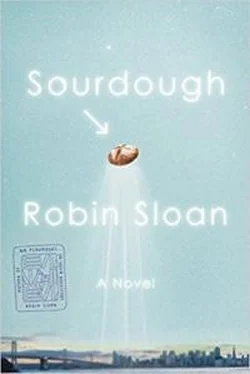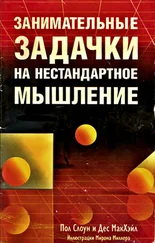On the back of the building, the upper window flickered with the movement of blinds. They snapped up and the window slid open with a sharp squeak. A Cornelia-shaped silhouette appeared. I heard a curious “Hmm” and the silhouette retreated. A few minutes later, Cornelia emerged around the side of the building. She extricated another lawn chair, dragged it over, and plopped herself down.
“Be a shame if the management company heard about this,” she said.
It would be a shame, indeed.
“You could keep your neighbor quiet pretty easy, though. Bribe her. I bet she just wants more of that bread.”
Did she now.
“Mm-hmm.” She leaned toward the oven, opened her palms to the heat. “Why bake it out here? Does it make a difference?”
I began to list the virtues of the Jay Steve Value Oven as I had learned them on the message board, not least of which was its capacity: for $200 of raw materials and a few hours of labor—not including these hours of fire-watching, which were decidedly unlaborious—I had doubled my baking capacity. I could fit four loaves inside this oven. Four! And they would come out better. This was a wood-fired brick oven, the kind used by Everett Broom, and also by the artisan bakers of ancient days …
I stopped talking, and we were quiet, watching the fire burn.
After a while, Cornelia hoisted herself up with a little grunt, said good night, and padded into the building. I saw her silhouette in the window. She waved, then disappeared, and the light went out, but the window was still open to the cold night air and the smell of the fire.
I fell asleep; for how long, I wasn’t sure. When I woke up, the oven was still going strong. The bricks weren’t steaming and crackling anymore. The curing process was well under way.
The crock wedged next to me was vibrating with the starter’s tremors of growth, even though I hadn’t fed it. Was it responding to the warmth? I peeled back a sweater and the blanket and heard its quiet musing leaking out into the night.
The air was heavy and cold, and when I looked up, I saw a surprise. The oven’s heat, rising in a steady plume, had bored through the fog and cleared a channel to the sky.
I saw stars.
YOU ASKED what makes the Mazg the Mazg. I’ve been thinking about it, and I’ve come up with three things.
First is our food. Most Mazg would say the culture—the starter—is the crucial thing, and of course the sourdough. Honestly … it’s not my favorite. I like the spicy better. But I think you already knew that.
Second is our singing! Easy one.
Third is our reticence. There are Mazg neighborhoods in cities all over Europe, but you would never know it, because we never have signs or storefronts. You will never, ever see our beautiful script on the street.
It’s a shame.
THE PROBLEM WAS ONGOING
I ROSE BEFORE DAWN, carried the loaves into the backyard, started a fire in the Jay Steve, let it roar. When I reached in to push the coals to the back, the intensity of the heat made it suddenly clear the oven in my kitchen was no oven at all. The tiny hairs on my arms all vaporized. Four loaves went in and I jammed the wooden plug into place. Then I did a little jig.
Forty minutes later, my hands shielded by thick mitts, I yanked the plug.
The loaves were bigger than before, colored a deeper gold. Clearly visible in the cracks and crevices of the crust were the wide smiles they wore.
Everybody was happy.
The simple math of it was astonishing, and I felt the giddy leverage of technology—more palpably, I should add, than at any moment during my General Dexterity orientation. This was simple and direct: Before the machine, I could make two loaves. After the machine, I could make four. For the first time in my life, I realized why a person might be interested in capital. This was capital!
I slammed through one batch of four loaves, then another. It took every ounce of restraint not to cut into the sourdough myself.
It wasn’t even six a.m. and I had a set of loaves, rough octuplets, all smiling. I had stopped worrying about the faces. I wrapped the loaves in paper towels, resolved to buy more appropriate swaddling—what was the appropriate swaddling?—and hustled out the door.
It was still dark outside. To the east, downtown San Francisco was obscured by hills, but the lights glowed splotchy purple on the underbelly of the marine layer.
The General Dexterity office was quiet but not deserted. Chef Kate was in her kitchen, bent over a notebook, building a tall, skinny to-do list. Her two sous chefs stood at their stations, rapping their knives through thick heads of cabbage and long green onions. This morning, it was slow-rolling hip-hop on the Bluetooth speaker.
“Here’s your first shipment,” I said, presenting the loaves.
Chef Kate inspected them one by one. “These look pretty good,” she said. “Consistent. But this—the crust.” She indicated the whorls of the faces. “How the hell do you do that?”
I told her it had been an accident the first time, and I’d repeated the steps every time since, which was technically the truth, if not entirely forthright.
“It’s weird, dude. But I think I like it. You got an invoice for me, or what?”
Later that day, I carried it to her, warm from the office printer. Forty dollars. I made more than that in fifteen minutes of programming, but this money felt special.
It was a decidedly different kind of work.
At General Dexterity, I was contributing to an effort to make repetitive labor obsolete. After a trainer in the Task Acquisition Center taught an arm how to do something, all the arms did it perfectly, forever.
In other words, you solved a problem once, and then you moved on to more interesting things.
Baking, by contrast, was solving the same problem over and over again, because every time, the solution was consumed. I mean, really: chewed and digested.
Thus, the problem was ongoing.
Thus, the problem was perhaps the point.
On Tuesday morning, I baked eight more loaves.
Every day after work, rather than migrate to the bar down the street with Arjun, I went straight home. I timed the bus perfectly, ran from the stop on Fulton Street to my front door, barreled into my apartment—because I had so much to do. I had to mix fresh dough, let it sit, work it again, shape it into loaves. All before bedtime, and bedtime was early, with a bar of sunlight still crossing the foot of my futon. It felt strange but good.
Wednesday: eight more loaves.
My hours at my desk became a blur. The moment I left the office, my brain shifted gears; the interlocking complexities of ArmOS were gone, evaporated, and all that existed was the labor ahead.
Thursday: eight more loaves.
Chef Kate made grilled cheese sandwiches using my sourdough and I saw them consumed in the cafeteria. I saw roboticists’ faces rapt with pleasure. I saw Andrei, the CEO, carrying one on his tray.
I took loose slices of sourdough, buttered luxuriously in the Chef Kate style, over to the Slurry table. Peter sharply declined, of course, but Arjun and Garrett both snatched them up greedily. “This is so good,” Garrett said. “Can I order it online?”
Friday: eight more loaves.
Some mornings, the repetition felt Zen-like; others, Sisyphean. But in either case, it felt good to use my arms, not my fingertips. My nose, not my eyes.
On Friday afternoon, Chef Kate told me the sourdough had been “pretty freakin’ good, dude”—I squealed—and asked me to keep it coming.
AS I MENTIONED BEFORE, nearly every large city in Europe has a community of Mazg, but they can be hard to detect. The Mazg like to live in alleys and courtyards, or up above the street. One of my uncles calls us “the second-story people,” which has a nice sound to it, I guess.
Читать дальше










